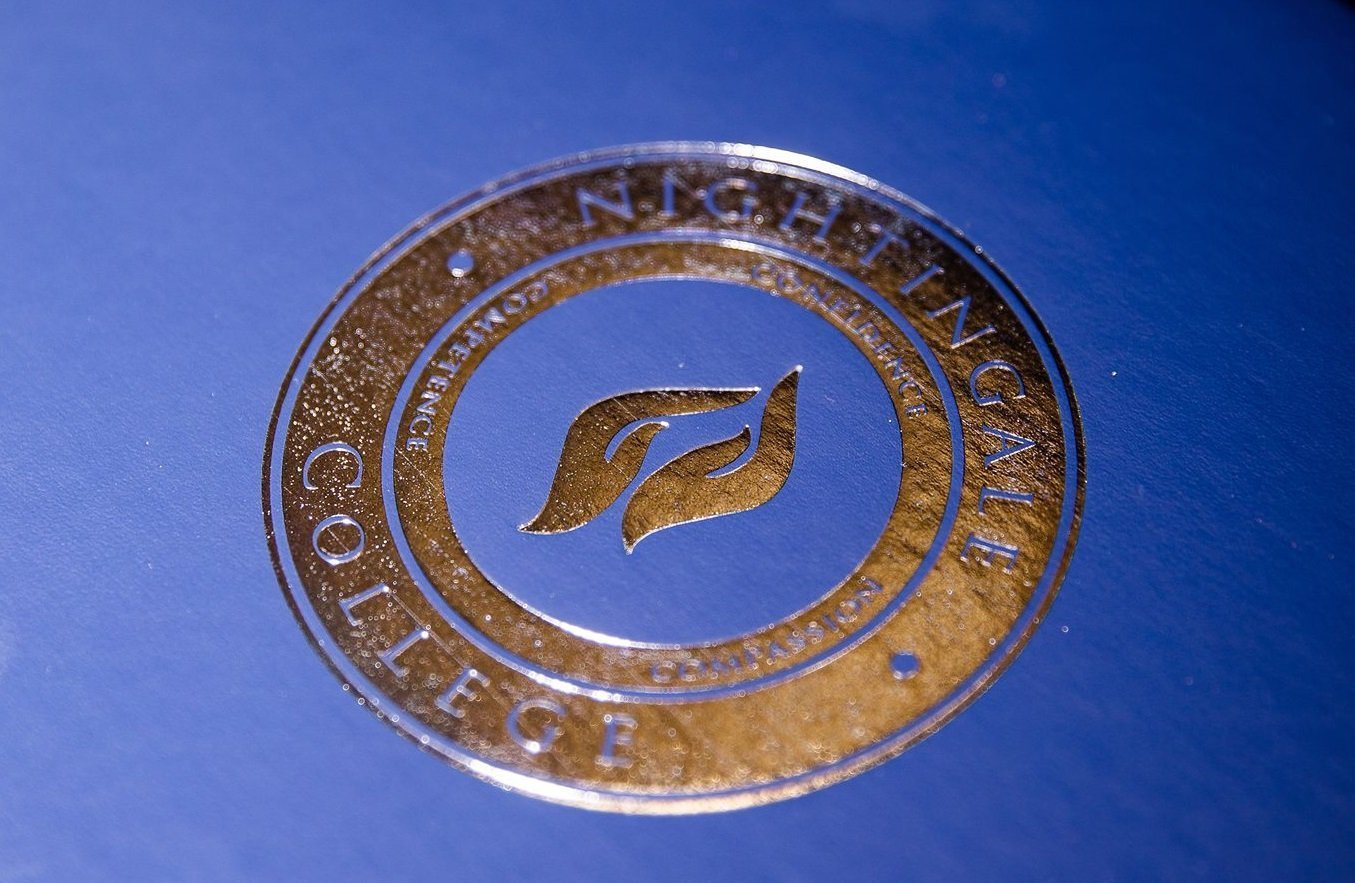How to Get Your ADN: Take the First Steps on the Path to Becoming a Nurse

There are countless reasons why you should pursue a career in nursing. Nursing is not just an emotionally rewarding profession, but can also be financially rewarding if you are willing to put in the effort required to advance your career.
There are a few paths that you can take in order to enter the nursing field: You can opt to get an LPN certification and then take the NCLEX-PN to become a licensed practical nurse, or you can choose a 2-year ADN program or go for a 4-year BSN program then take the NCLEX-RN exam to become an RN (registered nurse).
Whether you’re a fresh high school graduate who’s considering becoming a nurse or you’re simply unsatisfied with your current profession and think a career in health care would bring you the professional satisfaction that you so desire, earning an Associate Degree in Nursing (ADN) can be the fastest and most affordable way to become an RN.

What Is an Associate Degree in Nursing?
An associate degree in nursing (ADN) can be earned after completing a two-year program, which will prepare you for the NCLEX-RN exam. After you pass the national licensure exam, you can start working as a registered nurse (RN). The ADN is a great option for people who want to start working as a registered nurse as soon as possible or are simply unwilling to commit to a BSN program right from the start.
You can view the ADN as being the first step on your nursing career ladder. After you earn it and start practicing, you can further your education by going back to school while working and getting your BSN, such as enrolling in an RN-to-BSN bridge program.
If you have chosen to jump-start your career with an ADN, this guide covers all the steps you have to follow in order to successfully apply, enroll, and earn an associate degree in nursing.

How to Get Your Associate’s Degree in Nursing?
Here are the basic steps you need to follow in order to get your ADN and become a practicing registered nurse:
- Get a high school diploma or a GED diploma. While some courses require little to no prior learner knowledge, others, such as English, science, math, and social sciences, have prerequisite requirements, so you cannot enroll in an ADN program without having one of these diplomas.
- Apply to an accredited ADN program and go through the registration process. Employers favor nurses with degrees from accredited institutions, so the college you choose can impact the odds of you getting the job you want.
- Apply for financial aid if needed. Explore all options for paying the cost of your education. If you qualify for FA, be sure to make all the financial arrangements before classes start.
- Attend the program and complete its requirements. You will have to complete 2 years of theoretical and practical nursing courses that will prepare you for the NCLEX-RN exam.
- Register for and take the NCLEX-RN exam. You need to get licensed by The National Council Licensure Examination in order to practice as an entry-level nurse. The NCLEX exam tests your competence in nursing skills and knowledge; you must pass the exam in order to become a licensed nurse.
Alternatively, if you have already completed your PN diploma program, you can opt for an LPN-to-ASN pathway, which you can complete in as few as 16 months or 5 academic semesters.
How to Prepare for the ADN Program From High School?
You don't have to wait until high school is over in order to start your nursing experience – there are some things you can do on your own to prepare for a nursing career before enrolling in an ADN program:

- Get first aid or CPR training. For most high schools, a CPR certification is a requirement for graduation, but even if your high school doesn’t offer it, find an organization that does. Learning these basic skills will prove really helpful for your future career as a nurse. You will get an inside glimpse into patient care, so consider it a test run in the field of healthcare. You can also get a part-time job as a lifeguard, which will give you some hands-on experience with CPR.
- Volunteer in any healthcare facility. Apart from being a rewarding experience, volunteering in a healthcare environment will give you a behind-the-scenes look into the nursing work environment and help you better understand your future profession. Seeing what nurses do in a day’s work will either be a deal breaker or strengthen your conviction to pursue a nursing career.
- Network with nurses. You probably have an acquaintance or an acquaintance of an acquaintance who works as a nurse and can introduce you to the nursing field. If that's not the case, you can always schedule informational interviews with a few of the nurses at your local healthcare facility. They will most likely be flattered by your interest in their work and will provide you with all the insights and information you need.
Is an Associate Degree in Nursing Worth It?
ADN has been the standard for entering the nursing field for many years now. However, the recent BSN in 10 law may have changed the worth and overall appeal of ADN programs among potential applicants.
The law has already been adopted in New York and requires all nurses to earn a BSN degree within 10 years of getting their RN license. Since it entails an increase in BSN nurses across the U.S., many hospitals prioritize hiring nurses with BSNs in order to obtain Magnet Status and achieve a reputation for improved patient outcomes.
Many applicants are left wondering whether or not the ADN is still worth pursuing. The short answer is that, yes, getting an ADN degree is still relevant, especially if you already hold LPN accreditation and are looking to advance your career.
Find out more about the differences between the two in our ADN vs. LPN comparison, in licensure, responsibilities and career outlook.
Why Is the Associate Degree in Nursing Still Relevant?
The 2-year ADN program remains an accessible and affordable career path for inexperienced applicants and licensed practical nurses looking for a better job outlook. This is especially the case if you want to begin working in the field and gain experience as soon as possible.
While the BSN in 10 law may become relevant in the future, it remains to be seen if it will gain widespread adoption across the U.S. At the moment of writing, New York is the only state to sign the bill into law, with New Jersey considering it.
Lastly, the shortage of nurses in the U.S. remains a critical issue, and according to the Bureau of Labor Statistics, the number of available nursing jobs in the U.S. is expected to grow by 6 percent from 2022 to 2032, which is faster than average.
Getting a BSN degree will put you on the right career path and secure your future in healthcare, but an ADN program allows you to find employment as a nurse and gain experience as soon as possible. Plus, if you complete the ADN program and become a registered nurse, there is a 12-month RN-to-BSN fast track that you can opt for down the road. This means you can receive your BSN degree one year sooner while accumulating valuable experience.
Who Can Get an ADN?
Getting an associate's degree in nursing is best suited for learners who want to pursue a career in nursing without dealing with the expenses and the time necessary to get a BSN degree. The program is also ideal if you wish to start working in healthcare as soon as possible while still keeping your future options open. An ADN program is meant to prepare learners for entry-level nursing jobs, meaning no prior experience or extensive knowledge of the field is required.
However, an ADN diploma is also suitable if you already are a licensed practical nurse (LPN), in which case you’ll have to apply to an LPN-to-ASN bridge program. In fact, it is recommended, as your future job prospects will benefit from a relatively short 16-month educational pathway.
Who Is the ADN Program Best Suited For?
The ADN is a great start to your nursing career, but before embarking on this journey, you need to do a self-examination. You know yourself better than anyone else, so this should not be hard: try to think about your personal traits and professional goals.
Becoming a nurse entails a great deal of self-discipline, as well as organizational and time management skills. At the same time, if you feel you are an empathic, respectful person with good communication skills and the ability to think on your feet in any kind of situation, it means you have the core traits of a nurse. You can learn more about the critical qualities expected of future RNs from our article on how to determine if you should be a nurse.
The last thing you need to think about is whether you believe this is the right profession for you and if you wish to enter a field where the learning process never stops and where you have to better yourself constantly. If the answer is yes, then being a nurse is probably a perfect fit for you.
Ideal Scenarios for Getting an ADN Certification
If you find yourself in one of these three scenarios, then the ADN program is probably the right choice for you:
- You want to pursue the fastest way to become a practicing RN. Choose the ADN program if you have your mind set on the nursing profession and you want to be able to start working in the shortest period. You always have the chance to continue your education once you've gathered some hands-on experience in the nursing field and go on to earn your BSN degree through an RN-to-BSN program.
- You want the most inexpensive way to become an RN. In order to achieve your goal of starting work as a registered nurse, there are two paths you can take: get an ADN or get a BSN degree. The tuition fees for the ADN program are lower than the ones for the BSN program, so if you can't afford to pay for a BSN program right now, enroll in the ADN program.
- You want to continue your studies to go from LPN to RN. If you already are a practicing LPN who wants to become an RN, and you don’t feel ready to commit to a 4-year BSN program, then getting an ADN is your answer. Some colleges, including Nightingale, offer LPN to ASN bridge programs so you can get your degree faster.
The ADN program and LPN to ASN paths will both allow you to become an RN (registered nurse). Still, their particular benefits are slightly different, the former being a more direct route, while the latter two-step process prioritizes gaining hands-on experience as a nurse. The core prerequisite knowledge that will help you get an ADN is also consolidated during a PN diploma program, making the transition from LPN to ASN much easier and faster than the usual 2-year ADN programs.
The Nightingale College LPN-to-ASN pathway will prepare you for nursing practice in hospitals, clinics, and other healthcare settings. Additionally, you can complete it in as little as 16 months or 5 academic semesters.
Our curriculum meets the standards of the Accreditation Commission for Education in Nursing (ACEN). We have an 89% NCLEX-RN® pass rate, which is a good indicator of our Program's efficiency.
Learn how to advance your nursing career with our LPN-to-ASN degree!

Where Can You Get Your Associate's Degree in Nursing?
Many educational institutions provide the standard 2-year-long Associate Degree in Nursing programs, with the core knowledge and clinical skills for nursing. Once you complete it, you become eligible for the NCLEX-RN exam that is required to become a registered nurse.
Can You Get an ADN Online?
ADN programs cannot be fully online but rather hybrid or mixed. Many classes from a nursing program can be completed online. Still, since nursing is a hands-on profession, you must complete your training in an accredited healthcare facility near you to learn things such as starting an IV or inserting a catheter. The number of in-person clinical hours will vary by state.
This applies to both accelerated ADN programs and bridge ADN programs.
At Nightingale, we strongly believe that nurses must learn some hands-on skills, so we designed our LPN-to-ASN Program as a hybrid-virtual program that allows learners to complete all their didactic activities online and do experiential learning activities at our healthcare partner facilities, which are close to where learners live.
Get in touch with us if you want to become a nurse!

What Are the Steps to Enroll in an ADN Program?
The enrollment process will depend on the institution you opt for, but usually, the steps are as follows:
- Ensure that you meet the requirements. While ADN programs are entry-level, an institution may still require you to meet some prerequisites, including science and General Education courses.
- Apply to the higher education institution of choice. You will generally do so by completing an application for admission within a specific period before stated deadlines.
- Submit your transcript. Most colleges and institutions will require you to provide transcripts of all your previous college work to their records office. You generally need to send an official transcript, including the registrar’s signature, seal, and issue date.
- Meet and consult with an academic advisor. You will do so by scheduling and attending an appointment with the college’s advisory office.
- Apply to the ADN program. Complete your application within the stated deadline by providing the required documents, including an unofficial transcript of your previous academic work.
Tuition: How Much Does an Associate’s Degree in Nursing Cost?
Usually, the yearly cost of tuition for a standard ADN program will range from $6,000 to $20,000 for public schools and colleges and from $30,000 up to $100,000 for private and online institutions. The difference in price between public and private schools can be attributable to the benefits and flexibility provided by the latter.
Becoming an ADN is still the more affordable route to becoming an RN when compared to the tuition costs of BSN degrees, but it may remain inaccessible for many aspiring nurses.
Fast-track programs will generally cost you less. For instance, our LPN-to-ASN nursing degree requires $22,500 per 9 months in tuition and fees.
Beyond tuition, you will need to consider several other expenses, such as study materials, housing, transportation, and so on. That is why opting for an online program that also includes on-ground practical field experience may alleviate your bottom line.
Can You Get Financial Aid for the ADN Program?
Looking at the tuition fees can be somewhat overwhelming for someone who's fresh out of high school or someone who is in a financial pinch. But before you start worrying, look into all the Financial Aid options available for students and see which one better suits your needs and background.
You can opt for either loans or scholarships for an Associate's Degree in Nursing, but keep in mind that to maintain your Federal Student Aid, you must meet the Satisfactory Academic Progress (SAP) requirements for each semester.
If you find this process too confusing, you can always get help and information from the financial staff at the college of your choice or the U.S. Department of Education.
Can You Receive Aid for LPN-to-ASN Programs?
Receiving Financial Aid for Nightingale offers financial aid to learners applying to our LPN-to-ASN program, including scholarships, prepaid savings plans, and institutional, state, and Federal Student Aid (FSA). You can find more information on Financial Aid and Program Requirements by requesting information here or by checking and completing the College Catalog.
How Long Does It Take to Get an ADN Degree?
An ADN program will generally require you to complete two years or more to graduate if you enroll without prior experience or accreditation. In some cases, the academic period can be shorter, on condition that you have all the required General Education courses completed prior to enrollment at the college of your choice or any other accredited institution of higher learning. Read our article on how long it takes to become a nurse, to better understand how different programs and degrees affect the time until you can start practicing.
If you need to work full-time or lead a busy life, you may want to consider applying for a part-time ADN program, which can be completed in a period ranging from 30 months to 4 years. On the other hand, if you have already completed a PN diploma program and passed the NCLEX-PN, you can join an LPN to ADN bridge program and become an RN in 1-to-2 years.
Nightingale College’s LPN-to-ASN Program can take as little as 16 months to complete, making it one of the fastest routes to becoming an RN.
Get in touch with us if you want to advance your career!
What Classes Are Required in Order to Get an ADN?
An ADN program consists of didactic courses and experiential learning hours. The curriculum for the ADN usually covers nursing core and General Education coursework, including subjects like:
- Human Anatomy
- Human Physiology
- Psychology
- Biology
- Nutrition
- Physiology
- English
- Mathematics
- Social Sciences
The number of credits you must dedicate for each type of coursework will differ, with the core courses usually requiring the majority. For example, Nightingale College's LPN-to-ASN curriculum plan, which meets the National League for Nursing Commission for Nursing Education Accreditation (NLN CNEA) standards, divides the 68 semester credits required for graduation into 64 credits for core nursing courses and 20 for General Education.
What Skills Will You Acquire During an ADN Program?
The ADN Program aims to prepare learners to become competent and client-centered nurses who can provide patients with the best care possible. ADN graduates are equipped with nursing judgment expertise, learn how to communicate effectively with patients and fellow RNs, and acquire leadership and management skills that can help them further down in their careers.
Overall, an ADN program will introduce you to the nursing skills needed to pass the NCLEX-RN exam and perform the duties and responsibilities of a nursing role in your prospective work environment.
Note that repetition, familiarity, and experience are critical for passing the exam and receiving your RN license. This is why having work experience as an LPN before applying to an ADN bridge program is often the preferred and advantageous route, giving you a higher chance of success.
Advance your nursing career with our LPN-to-ASN Program. Send in your application today!
![]()
What Do You Do After You Finish the ADN Program?
After finishing the ADN Program, the obvious next step is taking the NCLEX-RN and getting your nursing license. In fact, a few weeks before graduation, you will receive the exam application forms from your university and be required to pay the licensure fees.
The NCLEX-RN is meant to determine if you are qualified to be a practicing nurse, and it is quite different from the exams in nursing school because it focuses on testing your critical thinking abilities, nursing judgment, and analysis skills instead of just your knowledge.
The exam has a complex structure and is divided into four main categories:
- safe and effective care environment
- health promotion and maintenance
- psychosocial integrity
- physiological integrity
The grading system is pass or fail, so the results are straightforward and won’t leave cause for discussion. If you want to continue your academic formation and advance your career in nursing, you can also opt for an RN-to-BSN track, which can be completed within 3 semesters or 12 months.
Where Can Nurses with an Associate’s Degree in Nursing Work?

An ADN program prepares you for all sorts of entry-level nursing jobs. These are some of the places where you can work as an RN with an ADN:
- General hospitals
- Specialized hospitals
- Nursing care facilities
- Doctor’s offices
- Community care facilities
- Outpatient clinics
- Home healthcare
How Much Does an RN With an ADN Win?
All RNs who have similar entry-level jobs should be paid the same. There shouldn't be a difference in salary between an RN with ADN and an RN with BSN who holds the same position.
If you are interested in the number aspect of RN salaries, you can visit our article about nurse salaries by state.
Now that you have all this information regarding an ADN, your journey toward becoming an RN can begin. Think well about your motivation and career plan, then enroll in the program that best suits your needs. Give it your best, attend classes, and meet all the requirements, and you'll be on the right track to becoming a practicing RN.
Become an ADN with our LPN-to-ASN Program! Send in your application today!

